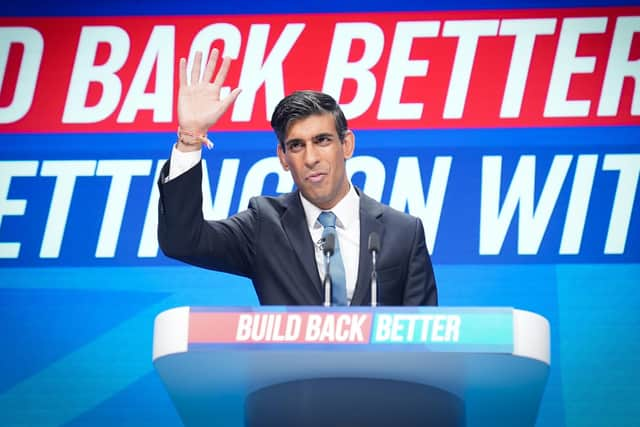Council tax hikes won’t fix social care funding crisis – Sir Stephen Houghton


Four years after Theresa May, the then premier, announced that the Government would publish a Green Paper and over two years after the current Prime Minister announced that “we will fix the crisis in social care once and for all”, the Government announced just £5.4bn over three years.
That may sound like a lot of money for the sector. However, when you consider that the existing yearly funding gap is already more than £2bn (and that is before you even consider the cost of the necessary improvements in care and increasing wages for the largely underpaid social care workforce), that the new funding is aimed at funding new proposals such as the cost cap, and that the rising demand for care means that, according to the National Audit Office, costs will likely double in the next 20 years, it is clear the new funding will do nothing for existing problems in the sector.
Advertisement
Hide AdAdvertisement
Hide AdAfter three years, it is proposed that there will be more flexibility about where the funds from the social care levy go. However, with the size of the NHS backlog and likely demand for health services, getting any additional funding for care will likely be impossible.


If there is no sufficient grant funding forthcoming at the spending review this month, then it is inevitable that rising social care costs will have to be funded by either cuts to existing council services or increases in council tax – both of which run counter to the Government’s “levelling up” agenda.
Over the last decade council funding has been cut by more than £16bn – and disproportionally weighted against more deprived authorities. To put this in perspective, this is similar in size to the entire local authority adult social care budget.
To save vital front-line services, councils have had to cut preventative ones – there is simply no more that councils can cut. This means that local authorities will be forced to substantially increase council tax.
Advertisement
Hide AdAdvertisement
Hide AdHowever, for council tax to properly fund care, the Local Government Association recently calculated that it would have to rise by 25 per cent over the next three years. The Institute for Fiscal Studies has said a rise of 3.6 per cent is required just to keep services running at pre-pandemic levels. This shows that council tax increases cannot in themselves pay for social care – more funding from general taxation is urgently required.


Residents, however, will have no doubt heard the Prime Minister say his government will “get social care done” and the new money is meeting its aim to “fix” social care.
They will therefore get a shock when their National Insurance increases and so does their council tax to support social care. Good luck to councillors trying to explain that!
As council tax is a regressive tax, this will hit those who can afford it least – at a time when fuel and energy costs are increasing and the £20 uplift in Universal Credit has ended.
Advertisement
Hide AdAdvertisement
Hide AdNot only is it regressive for residents, but poorer areas are able to raise less through increases. If I raise council tax by one per cent in Barnsley, due to banding distribution, that raises a lot less than a one per cent increase in a wealthy authority in the South-East.
Within the Special Interest Group of Municipal Authorities – the network of urban councils that I chair – almost half of our properties are Band A, which is double the rate in the rest of the country. The social care precept makes this worse, further increasing reliance on your local council tax base.
It is clear that the spending review must provide significant grant funding, related to need, rather than touting that councils have “access” to new funding, which will just be further council tax rises.
Government has made rightly made “levelling up” a cornerstone policy of this Parliament and quality public services must be an essential part of a long-term 20-year strategy to bring parity between different regions of the UK.
Advertisement
Hide AdAdvertisement
Hide AdI therefore urge the Government to put social care at the heart of the upcoming spending review. Failure to do so would not simply represent a significant missed opportunity but would mean that the “levelling up” ambitions of Ministers are unlikely to be achieved.
Sir Stephen Houghton is leader of Barnsley Council and chair of SIGOMA (Special Interest Group of Municipal Authorities).
Support The Yorkshire Post and become a subscriber today. Your subscription will help us to continue to bring quality news to the people of Yorkshire. In return, you’ll see fewer ads on site, get free access to our app, receive exclusive members-only offers and access to all premium content and columns. Click here to subscribe.
Comment Guidelines
National World encourages reader discussion on our stories. User feedback, insights and back-and-forth exchanges add a rich layer of context to reporting. Please review our Community Guidelines before commenting.